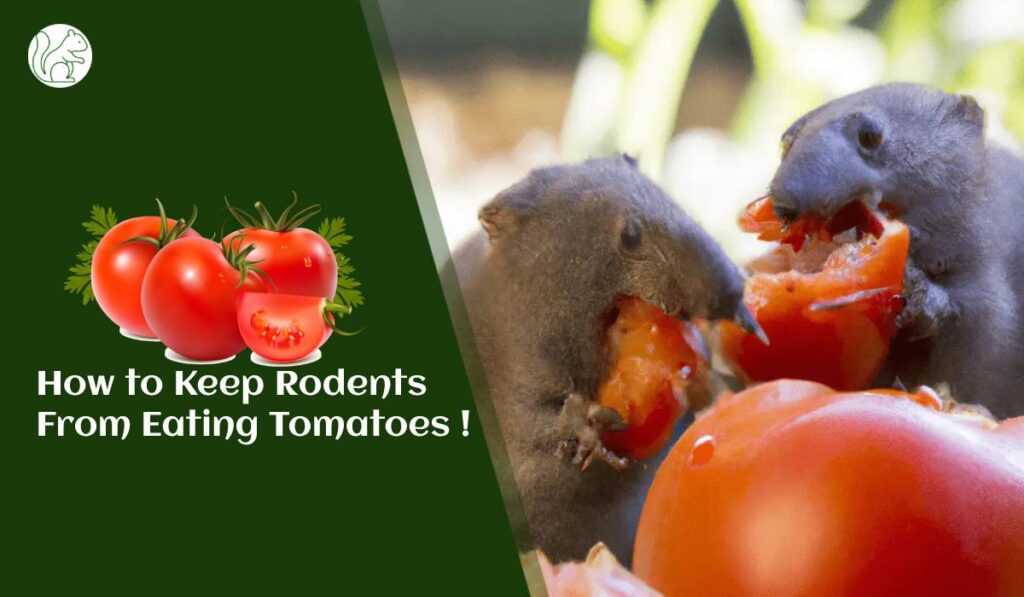Tomatoes are one of the most popular vegetables for home gardens, but unfortunately, they are also a favorite of rodents. These pesky creatures can quickly destroy your tomato plants and leave you with nothing to harvest. However, there are several effective ways to keep rodents from eating your tomatoes. In this article, we will explore some of the best tips and tricks to keep your tomato plants safe.

Understanding Rodents’ Feeding Habits
Before we dive into the methods of keeping rodents away from your tomato plants, it is essential to understand what they are eating. Mice, rats, and other rodents are not picky eaters and will devour anything that is available, including tomatoes. Rodents are attracted to the smell of ripening tomatoes, which they perceive as a potential food source. As soon as they locate the tomato plants, they will begin to feed on them, leaving behind a trail of destruction.
Tip 1: Build a Fence
One of the most effective ways to keep rodents away from your tomato plants is to build a fence around your garden. You can use chicken wire, hardware cloth, or other sturdy material to create a barrier.
Tip 2: Use Natural Repellents
Another effective way to keep rodents away from your tomato plants is to use natural repellents. Some of the best natural repellents include hot pepper spray, garlic, and predator urine. These substances are unpleasant to rodents and will keep them away from your tomato plants. You can make your hot pepper spray by combining chopped peppers with water and straining the mixture. Garlic is also an effective repellent, and you can use it by planting it around your tomato plants. Predator urine, such as fox or coyote urine, can also be effective in keeping rodents away.
Tip 3: Use Traps
Using traps is another effective way to keep rodents away from your tomato plants. You can use snap traps, glue traps, or live traps to capture the rodents. Snap traps are the most effective but can be challenging to set up. Glue traps are easy to use but may not kill the rodents immediately. Live traps are also effective and can be used to capture the rodents and release them elsewhere.
Tip 4: Clean Up Your Garden
Keeping your garden clean and tidy is essential in keeping rodents away from your tomato plants.
Rodents are attracted to clutter and debris, so it is important to keep your garden free of any trash, leaves, or other debris. Also, remove any fallen tomatoes from the ground as soon as possible to prevent rodents from feasting on them.
Tip 5: Use Repellent Plants
Finally, you can use repellent plants to keep rodents away from your tomato plants. Some of the best repellent plants include marigolds, daffodils, and onions. These plants emit a strong odor that rodents find unpleasant and will keep them away from your garden. You can plant these repellent plants around your tomato plants to keep rodents at bay.
Conclusion
In conclusion, keeping rodents away from your tomato plants is essential in ensuring a healthy harvest. By building a fence, using natural repellents, using traps, cleaning up your garden, and using repellent plants, you can keep your tomato plants safe and healthy. Remember to be consistent in your efforts, as rodents are persistent creatures and will keep coming back if they sense a food source. With these tips and tricks, you can enjoy a bountiful tomato harvest without the pesky.
